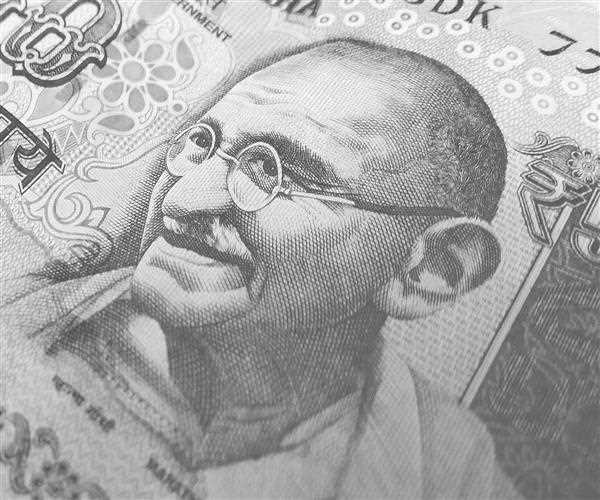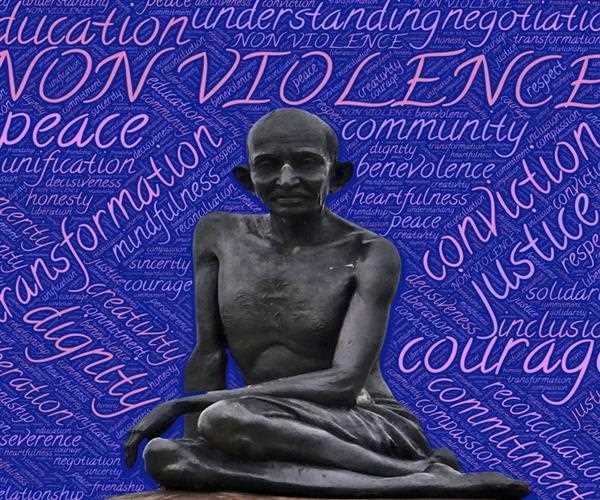
01-Nov-2021 , Updated on 11/1/2021 10:59:10 AM
Mahatma Gandhi And The Controversies
Mahatma Gandhi
Mahatma Gandhi is known as the Father of India but throughout the life Mohan Das Karamchand Gandhi evoked mixed feelings. He was viewed alternatively as a great soul, a great leader, revolutionary, saint or messiah or a fanatic, an eccentric, a reactionary, or as a man who must be killed. Internationally, known for the non-violent protest (satyagraha) to achieve the political and the social progress.
Mahatma Gandhi was born on October 2 in year 1869, Porbandar, India. When India was firmly under the Britain’s imperial yoke. Gandhi was last born child from his father Karamchand Gandhi’s forth wife named, Putlibai. Father was dewan i.e chief minister of Porbandar. He grown up with Hinduism cultural worship, stained in Jainism whose belief are nonviolence.
The primary education were completed in Porbandar itself where educational facilities were only elementary. He was then married at the very age of 13. In year 1887 just passed matric exams of Bombay University and Samaldas College. Mohandas proposed to visit England as a family custom in order to achieve high rank as a barrister that he accepted. There Gandhi ji took study passionately and brushed up his English at University of London. Afterwards, he returned to India there he found that profession from the barrister's degree was now overcrowded so, he started doing part time job as a teacher and such jobs.
Mahatma Gandhi in South-Africa
In 1893, he went to South-Africa as a proposed by an Indian firm. He spend more than two decades there, faced many challenges and opportunities as well. In South-Africa he faced racism called to take off his turban in courtroom to which he refused and left the court. Another incident took place when he was traveling thrown out of the first class compartment of train in spite of having tickets also got beaten and fastened from the hotel reserved only for Europeans.
Gandhi’s act of civil disobedience movement gave him determination to dedicate himself to fighting the deep rooted disease of racial discrimination. It was not the first case happened with Gandhi but many Indians already facing it all so, he started studying and educating such people their rights and duties, founded Natal Indian Congress to fight the discrimination. But, further he faced many struggles, up and downs kept resisting.
In year 1906, Gandhi launched first mass civil disobedience campaign, called it as “satyagraha” in oppose to government new restrictions on the rights of the Indians. After, years of protest government negotiated. Finally, in 1915 arrived in India which is considered as NRI day to celebrate return to Mahatma Gandhi from South-Africa.
Return to the India
Following three years Gandhi seemed precariously hovering over the fringes of Indian politics and refused to join any political movement, even to recruit for British Indian Army, simultaneously did not shy away from criticizing the British authorities for any arbitrariness.
In May 1915, Gandhi founded Sabarmati ashram in Ahemdabad for all the religions.
Major movements led by Gandhi
• Champaran Movement : In year 1917, it was first movement launched by Mahatama Gandhi with the support of many local leaders. This was the crucial movement provided India strength to raise the voice against rising injustice to farmers in Bihar. This was against forceful Indigo cultivation with harsh rules.
• Kheda Movement :In year 1918, kheda Satyagraha the major revolt, held against the heavy taxes on the farmers of kheda a district in Gujarat. The movement was lead by Gandhi with prime leaders like styagrahi Sardar Vallabhbhai Patel, advocates namely Indulal Kanaiyala, Mahadev Desai and many more. The peasants were very badly hit by famine, cholera and plague called Chalana Akal destroying the economy. The precedency of Bombay increased the taxes despite of the outbreak therefore they were incapable of paying increased taxes by British Raj.
• Khilafat Movement :In 1919, Khilafat Movement or Caliphate movement was an Indian-Muslim movement, the campaign was launched against the removal of Islamic leader caliph after break up of the Ottoman Empire at the end of world war I. Gandhi supported in launching and addressed in All India Muslim conference to prohibit British Government rules that made him a national leader.
• Non-Cooperation Movement :In the year 1920, one of the biggest mass movements I.e non-cooperation movement was observed in India. This political campaign was launched asking for “purna-swaraj” I.e full independence and boycotted the titles, legislative council, law court and British goods and services. It was unsuccessful because of outrage in crowd raised therefore, movement was called off by the Mahatma Gandhi.
• Dandi March: Civil Disobedience Movement :
On 12 March in 1930s, movement Civil Disobedience also known as Salt Satyagraha an act of non-violent led by Mahatma Gandhi to protest the salt tax imposed by British Government for 24 days. It became one of the prominent campaign as it was successful in uplifting the expression of women in the society as lot and lots of women became the part of protest.
• Quit India Movement :Finally, in 1942 the Quite India moment also known as August movement launched at Bombay session by Mahatma Gandhi during World war II with the slogan of “Do or Die”. But, many leaders along with Gandhi arrested which leads to outrageous situation in whole country. In 1947, the struggle of freedom came to its end as British Empire decided finally to free India.
Assassination of Mahatma Ghandhi
Mahatma Gandhi was assassinated on the 30th January, 1948 in New Delhi prayer meet at Birla House. Mahatma Gandhi wad killed by Nathuram Vinayak Godse who fired three bullets in his chest. Godse was very upset for Gandhi’s supporting Muslims community and also, blamed for partition into Pakistan. Godse and co-conspirator sentensed to death in 1949.

The Legacy of Mahatma Gandhi
Even after his assassination, Mahatma Gandhi is known for his choices and principles to rise up against a authority. Especially bravery and immense courage to rise up alone against an Empire at beginning.
His potent philosophies in the struggle of freedom is known throughout the world today and inspired the globe. Gandhiji exclusively known for his commitment and legacy of forgiveness, non-violence, simple and self-independent living beliefs by making his own cotton cloths from portable spinning wheel also known as charkha etc. left deep impression of moral science of right and wrong.
Controversies surrounding Mahatma Gandhi
However, after having legacy of countless constructive principles and beliefs not all the people refer Gandhi as much loved figure. He is surrounded by many controversies too, let’s dive to those aspects and explore.
The popular Mahatma Gandhi and Irwin pact of March 1931 was on one of the main demands put forward to release political prisoners but leaving out Bhagat Singh, Shivaram Rajguru, and Sukhdev Thapar, the three revolutionaries. That is the reason people blame for hanging these three martyrs. Although, Mahatma Gandhi wrote a letter to the Viceroy of India obliged to request the execution. People believe that he could have tried more firm demands to save lives of three most patriotic people.
People also believe that the discontinuation of Non- Cooperation movement after Chauri-Chaura massacre (1922) was wrong decision which delayed the liberation of India to 1947.
In 1930s Subhash Chandra Bose became one of the most prominent and notable leader in All India National Congress through his socialist and left wing ideology. When Bose simultaneously, announced his candidature for the post of congress president many leaders including Gandhi not supported instead, suggested the name of Maulana Azad who withdrew then he suggested another name of Dr. Pattabhi Sitaramayya. After, victory of Subhash Chandra Bose right wing whose main inclination was towards Gandhi refused to work. As Bose realized the congress split into two he decided to quite the congress.
Who should be blamed for the mass-killing during partition? Some named Jinnah and many others Gandhi for not preventing horror partition. Although he said “before partition, my body will have to cut into two” but, he was who signed first for partition. Also, Gandhi put to leaning towards the Muslims and alleged favoritism towards Pakistan. As he went on hunger strike, in demand of ₹55 crore to be given to Pakistan from the treasure for which he was criticized and got assassinated.
“An eye for an eye leaves the whole world blind.” – Mahatma Gandhi

Student
"I'm a student and passionate content writer, write to spark inspiration in the reader". I want to deliver an effective and valuable content to the audience.
Join Our Newsletter
Subscribe to our newsletter to receive emails about new views posts, releases and updates.
Copyright 2010 - 2026 MindStick Software Pvt. Ltd. All Rights Reserved Privacy Policy | Terms & Conditions | Cookie Policy